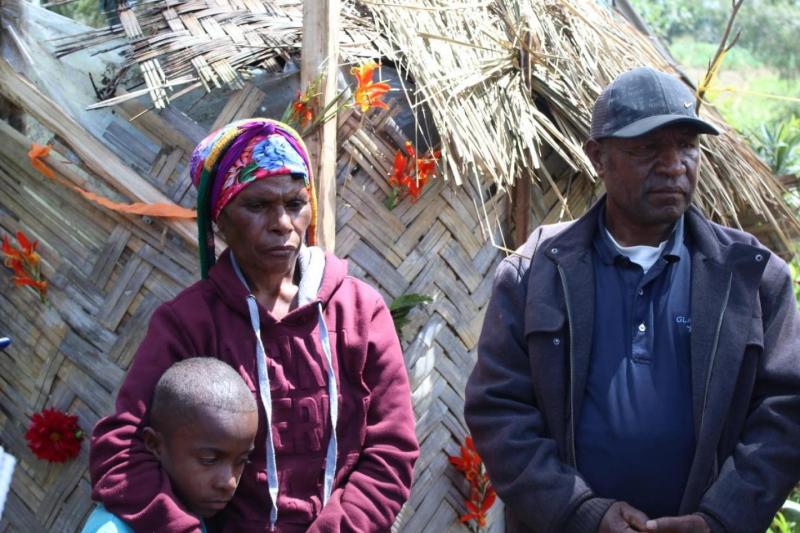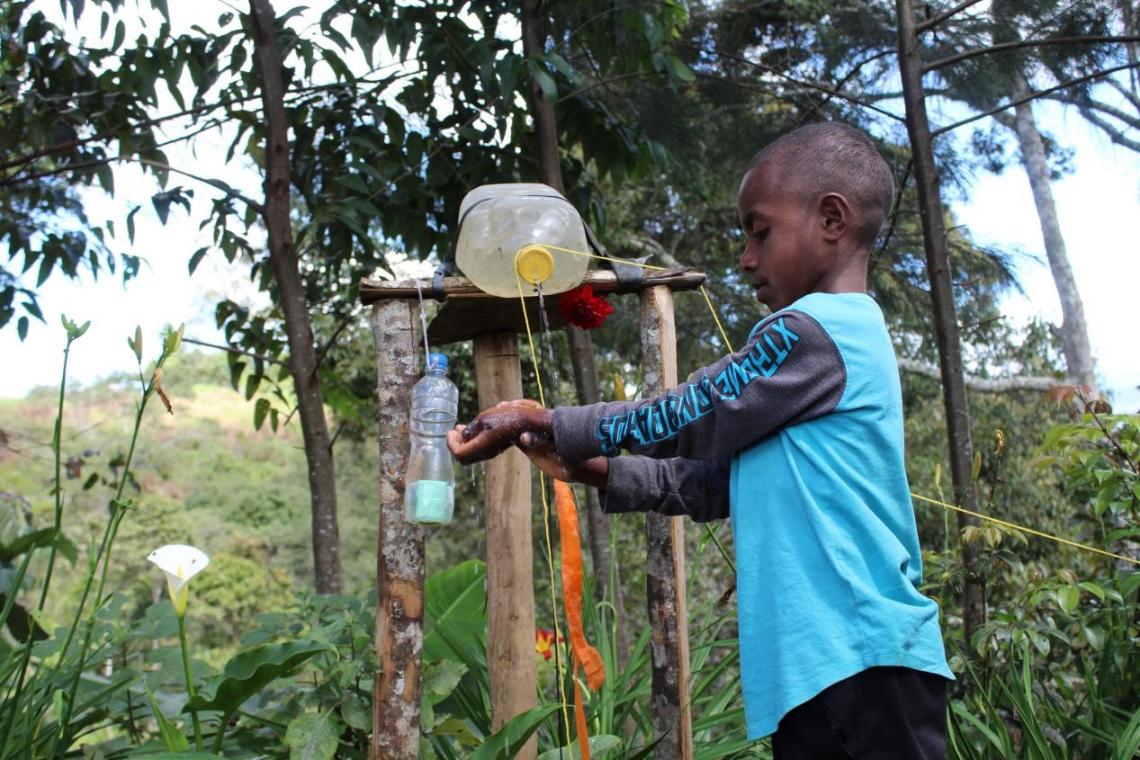

Handwashing was never a real concern for local community leader, John Dupi, his family and the rest of his Pupral community in Western Highlands Province.
Handwashing was never a real concern for local community leader, John Dupi, his family and the rest of his Pupral community in Western Highlands Province.
Like many other communities in Papua New Guinea where water is scarce, John and his family did not prioritise handwashing, instead keeping all the water they collected for cooking and drinking only.
The community even believed that defecating in the nearby bushes was better than using a toilet, a sad reality in many rural Papua New Guinea communities where the majority of households lack proper toilets.
“Handwashing was not a concern for us. We did not know that this was contributing to our sicknesses through the germs on our hands and through the flies that sit on faeces and then contaminate our food,” John stressed.
The good news now is that John is a champion advocate for improved sanitation and hygiene practices and a proud leader whose community of 300 households was recently certified as an Open Defecation Free (ODF). Each of the household now has a proper toilet.
Purpral is amongst 200 other communities in the Hagen Central District that is benefitting from a WASH programme called the Klinpela Komuniti Projek (KKP). Facilitated by UNICEF through funding support provided by the European Union, the KKP is teaching people the importance of improved sanitation and hygiene practices that are essential for good health outcomes.

John proudly shows off a tippy tap near his house. A bar of soap hangs in a container next to the tippy tap and his seven-year old son, Yawi John, happily demonstrates handwashing using water from the tippy tap. Handwashing is a routine for them now.
John and his community learned how to construct tippy taps from the KKP and explains that his family now don’t travel as frequently to the hospital for medical services
“Now my son knows the importance of handwashing, sickness does not affect my family and we don’t have to travel long distances for medical help constantly,” says John.
“I thank the European Union and UNICEF for this vital project that is changing communities and lives. I also encourage other communities in the province to build proper and safe toilets like what my community has done,“ he added.
The KKP is positively impacting on the productivity, health and well-being of up to 160,000 people including 40,00 children in 200 schools, 36 health facilities and 800 communities in four districts
While development partners like European Union are supporting government efforts to address the water issues in PNG, many more communities continue to access unsafe water from surface running water, piped water and well water that are exposed to contaminants.
PNG is one of 37 hotspot countries in the world that faces extremely high water vulnerabilities, according to a new analysis released by UNICEF globally.
The country’s estimated 8.5 million people are amongst those with the least access to safe water supply in the world. According to a 2017 Joint Monitoring Program global baseline report, only 37 percent of the population has access to basic water supply and 19 percent to basic sanitation Furthermore, only 13 percent of the population has access to basic sanitation compared to 57 percent of the urban population.
Originally published on UNICEF